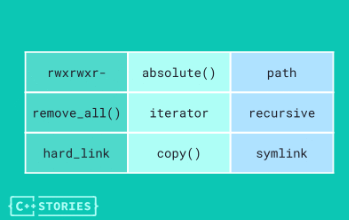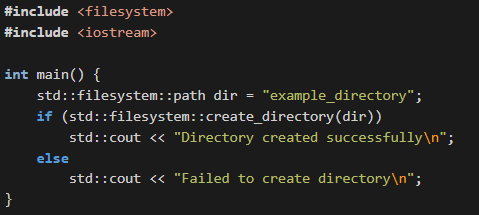CppCon 2024 Reflection Based Libraries to Look Forward To -- Saksham Sharma
![]() Registration is now open for CppCon 2024! The conference starts on September 15 and will be held in person in Aurora, CO. To whet your appetite for this year’s conference, we’re posting some upcoming talks that you will be able to attend this year. Here’s another CppCon future talk we hope you will enjoy – and register today for CppCon 2024!
Registration is now open for CppCon 2024! The conference starts on September 15 and will be held in person in Aurora, CO. To whet your appetite for this year’s conference, we’re posting some upcoming talks that you will be able to attend this year. Here’s another CppCon future talk we hope you will enjoy – and register today for CppCon 2024!
Reflection Based Libraries to Look Forward To
Tuesday, September 17 • 09:00 - 10:00 MDT
by Saksham Sharma
Summary of the talk:
The primary reason for your code to get bored is fatigue from repetitive instructions. You write down enums, but then you also have to write their stringified version, and you also have to write a function to map the strings to the enums. You write down a class, but you have to expose every method / member in the class separately to be able to bind your class to a Python program (for example).
Reflection is (potentially / hopefully) showing up for C++26, having already been forwarded from the SG7 subgroup on reflection / compile time programming to the LEWG and EWG. This talk will discuss everything there is so far on reflection, and we will lead up to three library ideas based on reflection:Python bindings
ABI hashing (hashing a type for efficient compatibility checking)
A better std::any variant type with duck typing ��
Come attend this talk if you'd like to hear about cool new library possibilities that have opened up with reflection!For background, we will look at a little bit of context and how reflection works in some other languages, and will explore how the P2996R1 paper’s proposed version of reflection looks in practice, with some real use-case inspired code.
Saksham Sharma is a Director of Quantitative Research Technology at Tower Research Capital LLC, a high frequency trading firm based out of New York. He develops low latency and high throughput trading systems and strategies used for the firm's global quantitative trading. In addition, he also helps design and improve big data research infrastructure used for trading research using a combination of C++ and Python. Thanks to an urge to optimize his daily workflow, he also owns the build systems, tooling, and package managers for C++ within his team.In the past, he has worked in the fields of program analysis research, functional programming, and systems security. He is a reformed geek (exemplified by a switch to VSCode after almost a decade with Emacs), and now enjoys driving, guitar, badminton, and snowboarding.

 Working with the filesystem can be a daunting task, but it doesn’t have to be. In this post, I’ll walk you through some of the most common filesystem operations using the powerful features introduced in C++17, as well as some new enhancements in C++20/23. Whether you’re creating directories, copying files, or managing permissions, these examples will help you understand and efficiently utilize the
Working with the filesystem can be a daunting task, but it doesn’t have to be. In this post, I’ll walk you through some of the most common filesystem operations using the powerful features introduced in C++17, as well as some new enhancements in C++20/23. Whether you’re creating directories, copying files, or managing permissions, these examples will help you understand and efficiently utilize the 
 I had the privilege to attend and present at C++ on Sea 2024 for the 5th time in a row!
I had the privilege to attend and present at C++ on Sea 2024 for the 5th time in a row!